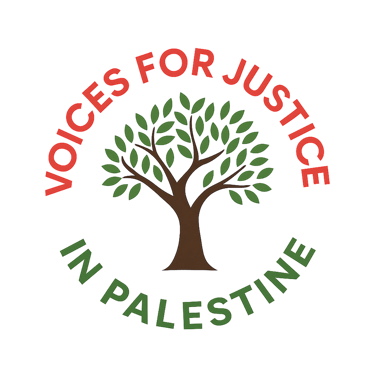The Power of Lies
International students who speak out for Palestinian rights are being falsely accused of antisemitism and support for terrorism. These lies have led to unjust detentions and deportations, stripping students of due process and their legal rights. We must challenge these dangerous falsehoods before more harm is done.
Rev. J. Mark Davidson
3/28/20253 min read


I have been thinking about the power of lies. How they have the power to substitute a false depiction of events for the true reality. And if lies are allowed to stand, if they go uncorrected, people will start believing things that are not true. Once lies are believed, people will be compelled to act on them. To do grievous harm on the basis of lies. For example, Mahmoud Khalil (Columbia University), Badar Khan Suri (Georgetown University), and Rumeysa Ozturk (Tufts University), are all international students – and there are hundreds more - holding visas or green cards. They have committed no crimes. Yet government agents have arrested them, detained them, stripped or threaten to strip them of their documents and deport them, all without due process. Though each of their circumstances are unique, they have in common a critical thing: they all engaged in constitutionally-protected speech supporting Palestinian rights and expressed criticism of Israel’s mass murder campaign in Gaza and U.S. complicity in it. The US Department of Homeland Security has charged them with “antisemitism” and “supporting Hamas, a foreign terrorist organization,” even claiming that they are “alien enemies” and their presence in the United States constitutes a “threat to national security.”
All of these charges are lies. Let us be clear: antisemitism, like Islamophobia and all forms of racism, is vile, and we should all be vigilant to root it out. Antisemitism is hatred of Jews merely because they are Jews. Yes, horrible. But exactly how is loving the Palestinian people and wanting peace and justice for them “antisemitism”? If that were true, every one of the thousands of Jewish students who support Palestinian liberation would be, by definition, antisemitic. That statement is absurd on its face. Supporting the quest of the Palestinian people for freedom, dignity, and equal rights in their historic homeland, and stating that Israel should be held accountable for its egregious collective punishment and atrocities in Gaza and the West Bank is a perfectly rational and moral position to take, and it has absolutely nothing to do with hatred toward Jewish people. Of course, the Israel Lobby – the American Israel Public Affairs Committee (AIPAC), the Anti-Defamation League, and a host of Zionist organizations, such as Camera and Betar which target, dox, smear, harass, and intimidate Palestinian solidarity activists – have pushed the lie that supporting Palestinian rights and criticizing Israel is intrinsically antisemitic. It most assuredly is not, and yet the lie persists, and now it is being weaponized by ICE and DHS agents using authoritarian police state tactics.
The lie that Palestinian solidarity activists support “terrorism” is particularly insidious. Peaceful protests against Israel’s genocidal violence and destruction in Gaza are about pressing for an end to American complicity and their universities divesting from Israel and from companies that profit from occupation and genocide. Distorting their brave acts of conscience against the crime of the century is a deliberate attempt to delegitimize their protests. Tagging them with the odious charge of supporting terrorism distracts from their demands, and provides a pretext for harsh government action against them. The serious charge of “supporting terrorism” must be backed up by evidence that individuals have provided “material support” for terrorism. Unsurprisingly, to date, no evidence has been produced to support such charges. One wonders if denying student activists their due process rights is related to the absence of solid evidence of what the government is alleging.
Suppose, for the sake of argument, that Palestine solidarity activists talked about Hamas more than they actually do. Suppose that some activists reject Hamas’ use of terrorist tactics, such as suicide bombs ignited on Israeli buses and crowds of innocent civilians, and rockets fired into urban areas. Imagine that others point out that occupied people are guaranteed the right to resist under international law, including armed resistance. Imagine, further, that some students would espouse the view that Hamas’ worst crimes pale in comparison to Israeli atrocities, that Israel has employed state terrorism against innocent Palestinians on a massive scale, with far greater severity, and over a much longer duration than anything Hamas has ever done. They go on to say that Israel’s actions throughout its hundred-year war on Palestine have earned its reputation as in fact the most vicious terrorist organization in the Middle East. And yet Israel does not appear on any western government’s terror watch list. A free society should welcome such robust debate, not criminalize it. Even if such opinions and conversations about Hamas abounded in the student movement – and in my experience, they do not – it would not be a crime, or even a problem, to express such opinions in a society that honors the First Amendment.
My wife’s high school debate teacher was fond of saying, “Never let a lie stand. Tear it down. Go after it vociferously until it crumbles. It cannot be allowed to stand.” If the opposing team utters a lie, never let it pass. It has the power to poison everything that comes after it.
